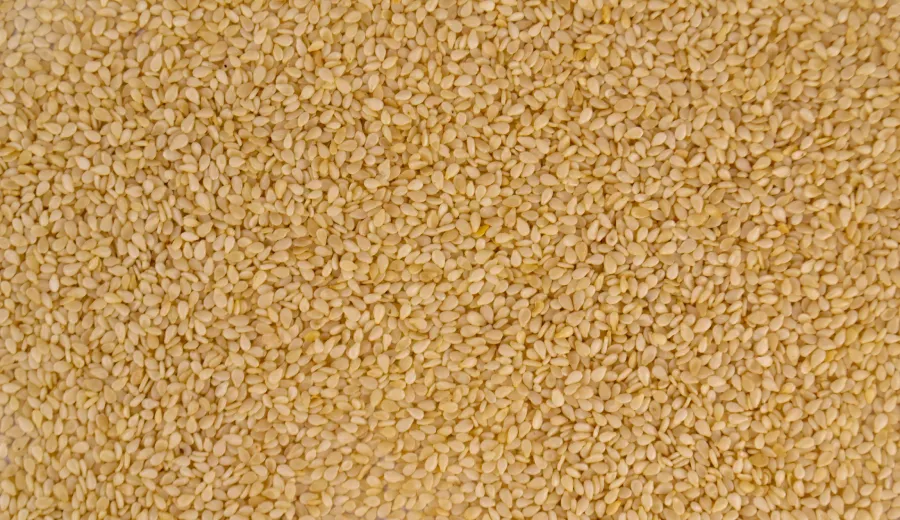
Looking for bulk sesame seed suppliers? Nutrada links you with certified partners offering natural, hulled, roasted, and oil-grade sesame seeds. A key ingredient in global cuisines and clean-label foods, sesame supports demand in the grains and seeds market for nutrient-dense, oil-rich seeds.
Sesame seeds (Sesamum indicum) are small seeds that are rich in oil. These seeds come from Africa and India and are some of the first oilseeds grown by humans. Today, they are widely used in baking, cooking, and making sweets, as well as in producing sesame oil. Their high oil content, health benefits, and great taste make them important in the food and beauty industries. Furthermore, you can find them in tahini and in mixtures, they are usually combined with nigella seeds, sunflower seeds, or rapeseed.
Sesame is typically harvested from August to September, based on where it is grown and the type of sesame. The plants are cut when the seed pods are ripe and beginning to split. After cutting, the plants are dried and the seeds are collected. Warm and dry climates help produce a better yield.
Sesame seeds are grown in many places around the world. In 2022, the total production was about 6.7 million metric tons. Sudan, India, and Myanmar accounted for about 41% of this amount. The top five producers are:
Sesame seeds have been important in diets and the Ayurvedic industry for many years. They play a key role in foods from around the world, like Middle Eastern tahini and Japanese gomashio. Today, sesame is valued for its health benefits; it is rich in healthy fats, protein, and antioxidants. As more people look for plant-based and gluten-free options, sesame seeds are becoming more common in health foods, snacks, and vegan products. Sesame oil is also an important part of ethnic cooking and wellness products.
Nutrada matches buyers with reliable sesame seed suppliers from top production regions. Whether you need natural, hulled, roasted, or black sesame seeds, Nutrada helps you source effectively for food processing, snack making, and oil extraction.
You can buy sesame seeds in bulk, with bags that usually weigh around 25 kilograms. This is the perfect packaging size for restaurants, distributors and manufacturers. Customers can choose between conventional and organic sesame seeds, as well as various appearances, to meet their specific needs.
Nutrada is your solution if you are trying to create a private label with sesame products. Our supplier network offers a variety of services that include co-packing, custom labeling, and making sure products meet regulations.
More people want organic sesame seeds, now that natural and ethnic foods grow in popularity. These seeds are grown without chemicals and are used in various Asian recipes. Nutrada's certified suppliers in India, Ethiopia, and Bolivia provide organic black, white, hulled, and unhulled sesame seeds.
Use Nutrada’s supplier network to find reliable exporters and distributors of sesame seeds. You can search by type, origin, form, and certifications to find the best options for your business. Sign up today to make your sourcing easier!